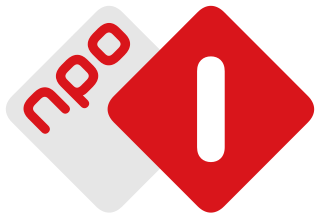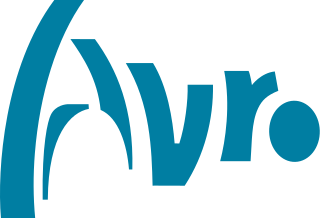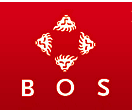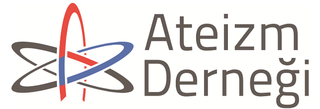The Dutch public broadcasting system is a group of organizations that are responsible for public service television and radio broadcasting in the Netherlands. It is composed of the Nederlandse Publieke Omroep (NPO) foundation, which acts as its governing body, and a number of public broadcasters. The Dutch Media Act 2008 regulates how air time is divided and puts the administration of the public broadcasting system in the hands of the NPO Board of Directors.

The Nederlandse Omroep Stichting is one of the broadcasting organisations making up the Dutch public broadcasting system. It has a special statutory obligation to make news and sports programmes for the three Dutch public television channels and the Dutch public radio services. It is funded by the Dutch government.
Religious broadcasting, sometimes referred to as faith-based broadcasts, is the dissemination of television and/or radio content that intentionally has religious ideas, religious experience, or religious practice as its core focus. In some countries, religious broadcasting developed primarily within the context of public service provision, whilst in others, it has been driven more by religious organisations themselves. Across Europe and in the US and Canada, religious broadcasting began in the earliest days of radio, usually with the transmission of religious worship, preaching or "talks". Over time, formats evolved to include a broad range of styles and approaches, including radio and television drama, documentary, and chat show formats, as well as more traditional devotional content. Today, many religious organizations record sermons and lectures, and have moved into distributing content on their own web-based IP channels.

NPO 1 is the first national television station in the Netherlands. It launched on 2 October 1951. It provides public broadcasting and currently exists next to sister channels NPO 2 and NPO 3. Several broadcasting organisations of the Publieke Omroep deliver a wide variety of programs for the channel, usually for larger audiences. In 2018, it was the most viewed channel in the Netherlands, reaching a market share of 22.0%. The channel is also available via cable TV in the Dutch Caribbean, either live or time-shifted.
The Netherlands was represented at the Eurovision Song Contest 2006 with the song "Amambanda", written by Caroline Hoffman, Niña van Dijk, and Djem van Dijk, and performed by themselves under their stage name Treble. The Dutch participating broadcaster, Nederlandse Omroep Stichting (NOS), organised the national final Nationaal Songfestival 2006 in order to select its entry for the contest. Three artists competed in the national final on 12 March 2006 where the winner was selected over two rounds of voting. In the first round, each of the artists performed three songs and a nine-member jury panel selected one song per act to qualify to the second round. In the second round, "Amambanda" performed by Treble was selected as the winner exclusively by a public vote.
The Netherlands was represented at the Eurovision Song Contest 2005 with the song "My Impossible Dream", composed by Robert D. Fisher, with lyrics by Bruce Smith, and performed by Glennis Grace. The Dutch participating broadcaster, Nederlandse Omroep Stichting (NOS), organised the national final Nationaal Songfestival 2005 in order to select its entry for the contest. 24 entries competed in the national final which consisted of five shows: four semi-finals and a final. Six entries competed in each semi-final with three advancing: two entries selected based on a public vote and one entry selected by a three-member jury panel. Twelve entries qualified from to compete in the final on 13 February 2005 where "My Impossible Dream" performed by Glennis Grace was selected as the winner following the combination of votes from three jury panels and a public vote.
The Netherlands was represented at the Eurovision Song Contest 1999 with the song "One Good Reason", written by Tjeerd van Zanen and Alan Michael, and performed by Marlayne. The Dutch participating broadcaster, Nederlandse Omroep Stichting (NOS), selected its entry for the contest through Nationaal Songfestival 1999. Ten entries competed in the national final on 14 March 1999 where "One Good Reason" performed by Marlayne was selected as the winner following the combination of votes from an eight-member jury panel and a public vote.

AVRO, short for Algemene Vereniging Radio Omroep, was a Dutch public broadcasting association operating within the framework of the Nederlandse Publieke Omroep system. It was the first public broadcaster in the Netherlands. In 2014 AVRO merged with fellow broadcaster TROS to form AVROTROS.
The Netherlands was represented at the Eurovision Song Contest 2001 with the song "Out on My Own", written by Dirk-Jan Vermeij and André Remkes, and performed by Michelle. The Dutch participating broadcaster, Nederlandse Omroep Stichting (NOS), selected its entry for the contest through Nationaal Songfestival 2001. Six entries competed in the national final on 3 March 2001 where "Out on My Own" performed by Michelle was selected as the winner following the combination of votes from three jury panels and a public vote.
The Netherlands was represented at the Eurovision Song Contest 2003 with the song "One More Night", written by Tjeerd van Zanen and Alan Michael, and performed by Esther Hart. The Dutch participating broadcaster, Nederlandse Omroep Stichting (NOS), selected its entry for the contest through Nationaal Songfestival 2003. The broadcaster returned to the contest after a one-year absence following its relegation in 2002 as one of the bottom six entrants in 2001. 32 entries competed in the national final which consisted of five shows: four semi-finals and a final. Eight entries qualified from to compete in the final on 1 March 2003 where "One More Night" performed by Esther Hart was selected as the winner following the combination of votes from a seven-member jury panel and a public vote.

Boeddhistische Omroep Stichting was a special broadcaster on the Netherlands Public Broadcasting system, which was allowed to broadcast on radio and television because of their religious background. It was one of the "2.42 broadcasters". The broadcaster was known for broadcasting from a Buddhist perspective.

Joodse Omroep was a special broadcaster on the Netherlands Public Broadcasting system, allowed to broadcast on radio and television because of their religious background. It was one of the "2.42 broadcasters". On 1 January 2016 the Joodse Omroep became part of the Evangelische Omroep due to reconstructions of the public broadcast companies.
Zendtijd voor Kerken was a special broadcaster on the Netherlands Public Broadcasting system, which was allowed to broadcast on radio and television because of their religious background. It was one of the "2.42 broadcasters".

The Interkerkelijke Omroep Nederland (IKON) was a Dutch public broadcaster which made radio and television broadcasts on behalf of seven church communities. IKON also offered other services such as Teletekst, the IKON newspaper, the IKON pastorate and Internet. In IKON's airtime, the Wilde Ganzen collected money for projects in the Third World.

Nederlandse Publieke Omroep or Dutch Foundation for Public Broadcasting is a Dutch public broadcasting organisation that administers public broadcasting services in the Netherlands. NPO is also the owner of the radio-spectrum licence and public DVB-T and DAB+ frequencies.

AVROTROS is a Dutch radio and television broadcaster that is part of the Dutch public broadcasting system. It was founded in 2014 as the result of a merger between the Algemene Vereniging Radio Omroep (AVRO) and the Televisie Radio Omroep Stichting (TROS). The name AVROTROS has been used for jointly produced programmes since 1 January 2014. Since 7 September 2014, all existing AVRO and TROS programmes have also been broadcast under the name AVROTROS.
Veronica is a brand name of successive Dutch commercial and public radio and television broadcasters. It began its life as an offshore radio station, Radio Veronica, on 17 May 1960. The name comes from its first name VRON – Vrije Radio Omroep Nederland. "Free" was a reference to the laws at the time that did not allow commercial radio broadcasters to operate from a location within the (land) territory of the Netherlands.
Vrijdenkersvereniging De Vrije Gedachte (DVG) (English: Freethinkers association The Free Thought), is a Dutch atheist–humanist association of freethinkers. It was founded in 1856 and known by the name De Dageraad ("The Dawn") before assuming its present name in 1957. De Vrije Gedachte strives to use reason, natural science and logic to liberate humanity from prejudices, clerical paternalism, dogmas and false truths.

Ateizm Derneği is a Turkish non-profit organisation that describes itself as a freethinker association founded on 16 April 2014 for the promotion and advocacy of the concept of atheism, and serves to support irreligious people and freethinkers in Turkey who are discriminated against based on their views. Ateizm Derneği is headquartered in Kadıköy, Istanbul. As of 2019, its president is Selin Özkohen.

Omroep Zwart, also known simply as Zwart, is a Dutch broadcasting association that is part of the Dutch public broadcasting system since 1 January 2022. The initiators are rapper Akwasi Ansah and film director Gianni Lieuw-A-Soe. The goal of the broadcaster is to create inclusive programs with new people, including those with different skin colors, preferences, origins, sexual orientations, backgrounds, or disabilities. The broadcaster collaborates with BNNVARA.










